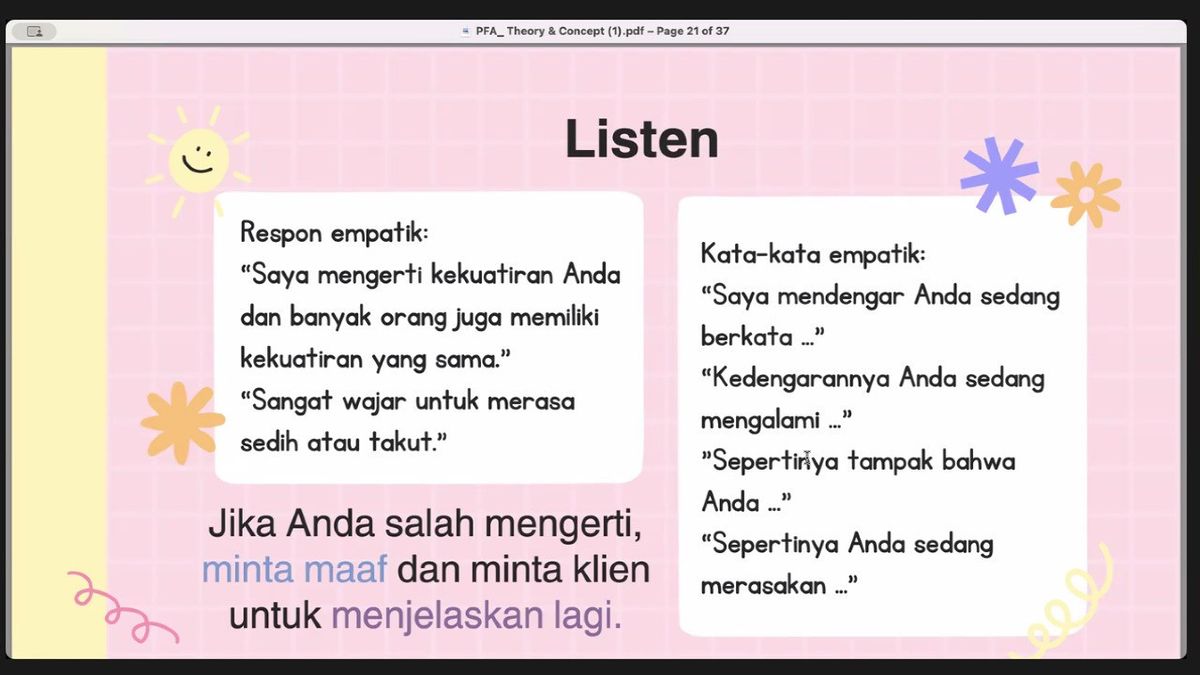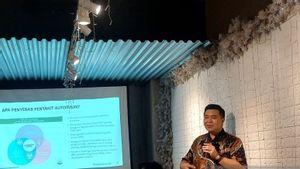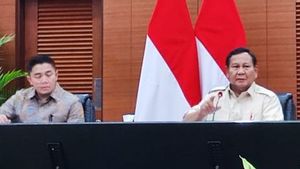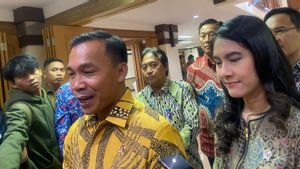JAKARTA – realizing the importance of first aid capabilities on mental health issues, the Satkaara Sharing Teacher Community (KGSB) is again holding the First Aid Psychological Training (PFA) Batch II. Training activities were held online for three days, namely April 27, May 4 and May 11, 2024, which is a collaboration between KGSB and Pelangi Psychology Consultants and alumni of the Faculty of Psychology, University of Indonesia in the context of the 64th Anniversary of the Faculty of Psychology, University of Indonesia. Psychological First Aid (PFA) training was held in response to the phenomenon of increasing mental health problems among students.
Based on a survey conducted by Indonesia - National Adolescent Mental Health Survey (I-NAMHS) 2022, 1 in 3 Indonesian teenagers aged 10–17 years had mental health problems. This figure is equivalent to 15.5 million teenagers. The mental disorders most experienced by teenagers are anxiety disorders, social phobias, major depression disorders, behavioral disorders, post-traumatic stress disorders (PTSD) and attention center disorders (ADHD). This is quite worrying considering that almost 20% of the total Indonesian population is in the age range 10–19 years.
Mental health problems in these students can cause emotional disorders, difficulty concentrating, stress, and depression. That is why the role of teachers and schools is very much needed, especially in providing PFA or what can also be called early psychological support (DPA) on students' mental health problems.
The training which aims to provide educators with first aid capabilities on children's mental health problems is held in 3 sessions. The briefing session, April 27, then the roleplay session, May 4, and independent practice as well as the evaluation session, May 11.
The PFA Batch II training was attended by 80 KGSB member teachers who had passed the selection process and were educators from various levels of education, ranging from PAUD to SMA/SMK as well as the Extraordinary School (SLB). Their domicile was spread from various parts of Indonesia, plus several participants from neighboring countries namely Timor Leste.
As a resource person, Christian Reneta, M.Psi - Founder of Psychology Consultant Pelangi & Lecturer Faculty of Psychology UNIKA Atma Jaya, and Lita Patricia Lunanta, M.Psi, Psychologist from Pelangi Psychology Consultant & Lecturer Faculty of Psychology Esa Unggul University. In addition, the training during the roleplay session was supported by the presence of 15 psychologist facilitators from the alumni of the Faculty of Psychology, University of Indonesia.
KGSB Founder Ruth Andriani explained, the PFA Batch II Training activity is a continuation of a similar activity that was held by KGSB in 2022. It is not enough just to be concerned about the phenomenon of increasing mental disorders among Indonesian students, KGSB wants to play a role in helping educators to have the ability to provide the right initial assistance for their students.
“ We do want to attract as many participants as possible and from a more diverse background to be given PFA briefing and training. We hope that everyone, not necessarily professional psychologists, should pay attention to potential mental disorders in children, and be able to take PFA actions to save their mental health as early as possible.
Lita Patricia Lunanta, M.Psi, Psychologist from Pelangi & Lecturer Psychology Faculty of Esa Unggul University added that the purpose of PFA is to restore a sense of security, establish useful relationships to meet urgent needs, and restore feelings of self being able to cope with circumstances and help yourself.
“PFA can be done anywhere. Ideally, it will be done immediately during the first contact with the client or usually immediately after the disaster. But if it's only discovered, it could also be a few days or weeks or even months later,” explained Lita.
The Principles Of Look, Listen And Link As Initial Actions
In the roleplay session, participants were divided into small classes with the assistance of facilitators from the Alumni of the Faculty of Psychology, University of Indonesia. In this session, each participant took turns as a teacher and student. They were asked to practice examples of bad communication (bad communication) and good communication (good communication) during counseling related to mental health problems experienced by students.
Through this game, participants can get a new perspective from the perspective of students. In addition, they can also immediately practice PFA knowledge that has been described by speakers, namely ‘Look, Listen and Link’.
Christian Renewable, M.Psi, Psychologist, Pelangi & Lecturer Psychology Consultant & Lecturer Faculty of Psychology UNIKA Atma Jaya explained, the main principles of PFA's actions are Look, Listen, and Link (see, listen, and link).
At the Look stage, it is important for teachers to first assess the circumstances of the ongoing events and about (profiles) students who need assistance. It must also be assessed as a risk (safety and safety of the students concerned) for example whether there is a physical injury, how to fulfill the primary and basic needs of these students, as well as how to react emotionally. they.
At Listen stages, assessments given include listening, understanding, exploring, encouraging, and finding solutions. Teachers must seriously pay attention to and listen to these students actively, be able to understand their feelings, be able to calm them down regarding the crisis situation they are suffering from, ask what their needs and concerns are, and be able to help solve their urgent needs and solve their problems.
The last stage, namely Link, is to connect students with people or other parties according to their needs. If students need medical treatment, they can be referred to a doctor. If students need further counseling, they can be referred to a counselor or psychologist. If there is a psychological disorder that requires further treatment, it can be referred to a psychiatrist.
“ One thing that should be avoided when providing counseling is to give students certain assumptions and labels. In addition, never underestimate students and how to react, Renewa said in a media statement received by VOI, Saturday, May 11.
After the roleplay session, participants were also given the task of Mandiri Practice. Participants are given the opportunity to practice PFA to the surrounding environment, it could be to students, family, or relatives. After that, participants made a report from the practice of PFA which had been carried out and presented it at the evaluation session at the end of the meeting.
The 64th Head of the Dies Natalis Psychology University of Indonesia, Ringking Marina Total, M.Si., revealed that alumni of the Faculty of Psychology are very enthusiastic about being able to play a facilitator in the PFA Batch II training roleplay session.
“We are happy to be able to contribute. We hope that the PFA science briefing can help educators to detect early psychological disorders in students, ” he concluded.
SEE ALSO:
The English, Chinese, Japanese, Arabic, and French versions are automatically generated by the AI. So there may still be inaccuracies in translating, please always see Indonesian as our main language. (system supported by DigitalSiber.id)
Most Popular Tags
#Prabowo Subianto #New Year #airplane accident #Hasto Kristiyanto #nataru #squid game 2Popular
31 Desember 2024, 20:12


















